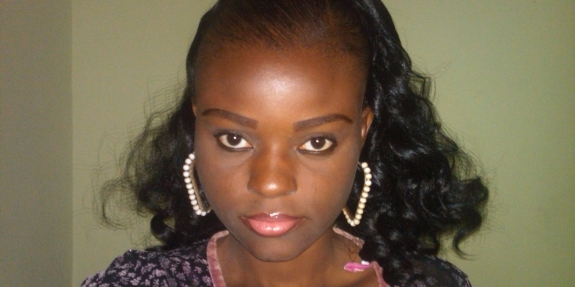For many girls in Nigeria, child marriage is a choice families make out of the despair of poverty, argues Tobore Mit Ovuorie. Ovuorie (32) is a senior reporter with Premium Times, a Nigerian based investigative media house. A psychologist by training, Ovuorie won awards as Nigeria's investigative health reporter of the year, humanitarian reporter of the year and several others.
There is a big protest movement against child marriage in Nigeria now, prompted by the failure of the Senate to clearly legalize against it, and by the fact that a Senator, Yerima, just recently married a 13 year old girl. With so much social protest going on, will we see the end of child marriage in Nigeria soon?
I don’t think so. I hold no brief for Senator Yerima, who would rather give a baby a penis than a pen, but the protesters ignore the wider reality of 39% of girls under 18 who are married off in Nigeria every year. They beat their heads against the wall, explaining how terrible it is, but don’t offer solutions.
Surely a solution is to outlaw it?
And will that help parents who don’t know where their next meal is going to come from? There are many whose only choices are child marriage, starvation or a teenage daughter in the street fending for herself. A comment under the article I wrote referred to the reality that many 12-year-olds are forced to work as domestic workers in strange homes, where they often get abused, also sexually.
So Nigeria is still struggling with desperate poverty, in spite of the economic boom?
Yes. That is where the protests should be directed. If we would have jobs and corruption-free public services, you would see a gradual end to this practice.
Maybe education about the dangers of child marriage will also help? Parents might think again if they would know of the vesicovaginal fistula (VVF), that often plagues girls who have given birth before their bodies were ready?
I advocate that type of education, because it is true that many parents don’t realise that being married off early can make their daughter sick. We had and are still having so much education about HIV/AIDS, we could do with the same around VVF and child marriage, or teenage motherhood in general. A state of emergency should be declared on this topic, the way it was done with regard to HIV/AIDS some years ago.
It’s amazing that many seem to think that it’s actually alright for a little girl to marry.
Don’t forget that all traditional communities marry their girls off quite early. My paternal grandmother married at age 13, had many children and lived a very fulfilling life. My friend's mother got married at 13. Her husband was already a pastor when he picked his child-bride. My hairstylist also got married at 16. She is now 19.
So there is still a whole traditional context regarding women’s roles in life?
Yes. We need to address the issue as a whole. It’s not just girl marriage. Oppression, abuse and violence against women in and outside marriage are common in Nigeria. It is never even addressed as a crime by the authorities; hence, women tend to keep mute while those who speak out are treated as outcasts.
In the debate that is raging in Nigeria, the Islamic north of the country (from where Senator Yerima hails) is blamed for the backwardness.
That is complete nonsense. My friend's father was an evangelical Christian pastor when he married his baby-bride. Her family, just as mine, has no traces of Islam: we are all spirit-filled tongue-speaking Christians. Poor families from all communities marry their girls off all over Nigeria.
But are you saying child marriage should remain legal even in these modern times?
I am not saying that. The Constitution is as crazy as Nigeria itself. But I don’t see how legislation can address an entire social context. We need more sincere government action, quality education, jobs, services, as well as a serious effort to address violence against women.
And is the Nigerian government starting to act in this regard?
I don’t see it yet. And as long as it doesn’t, girl children will get married. Like it or not.
This interview was conducted by Evelyn Groenink, ZAM Chronicle’s investigations editor.


